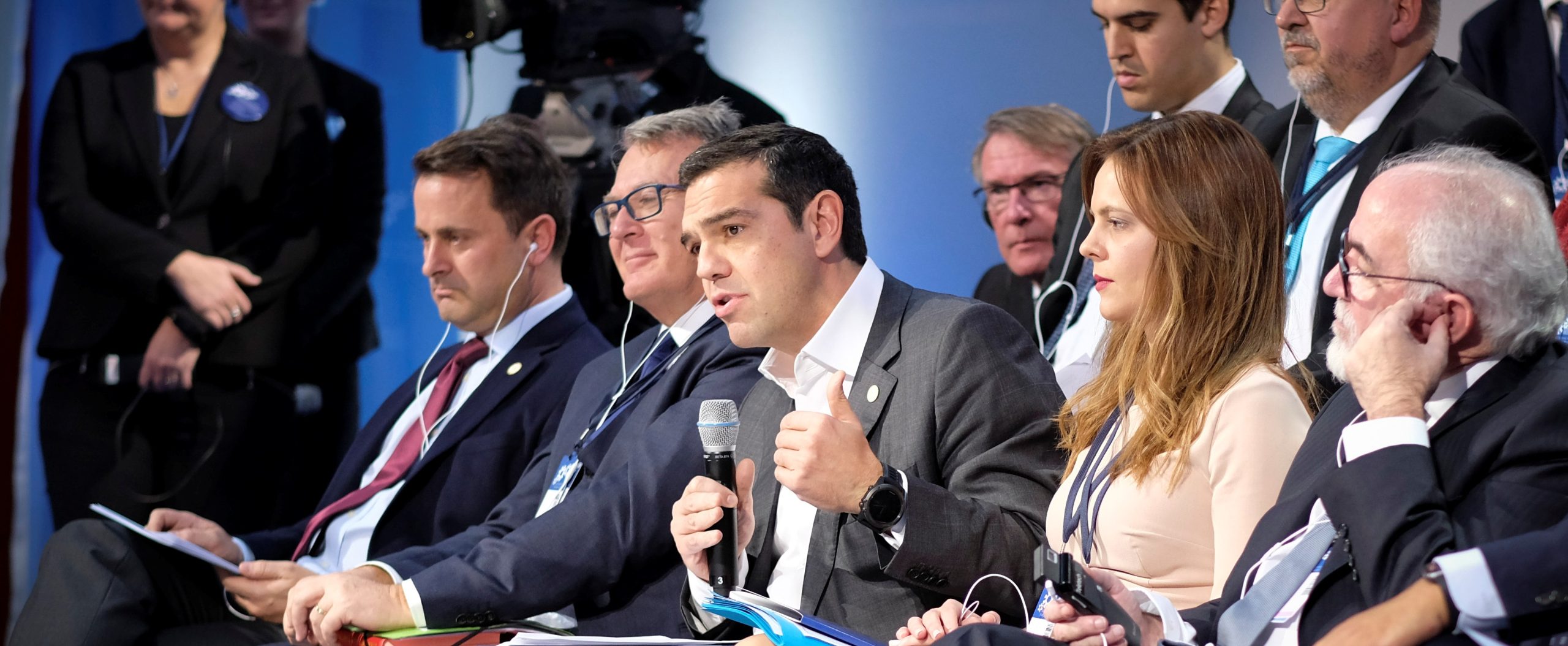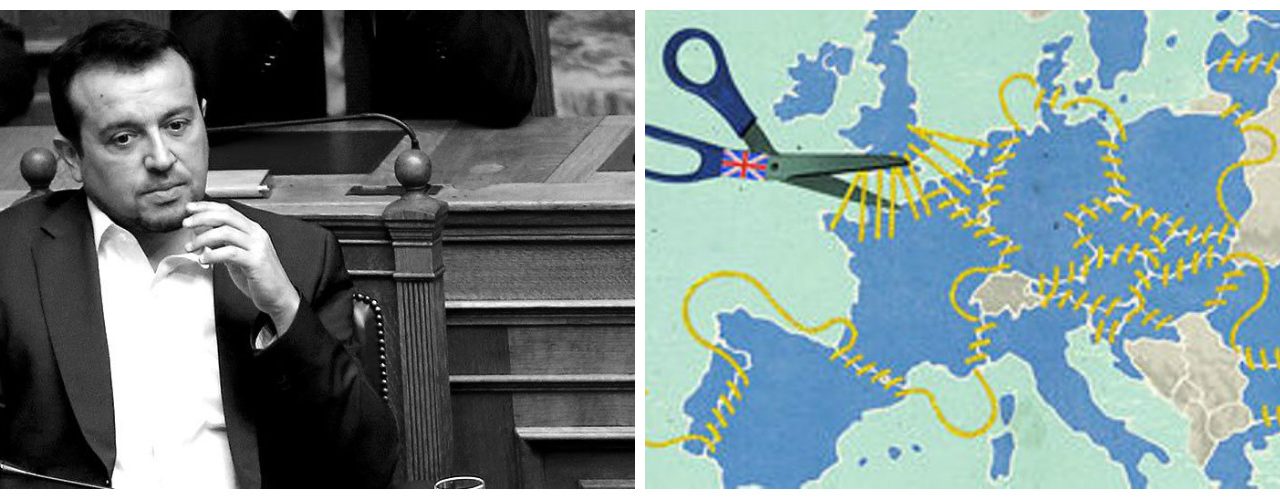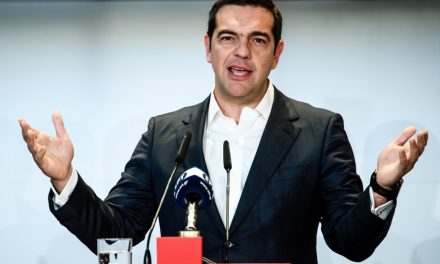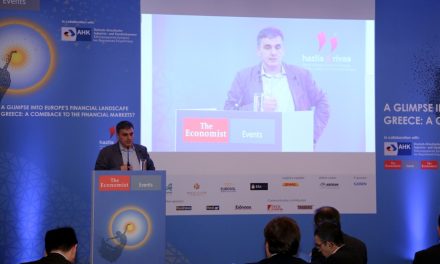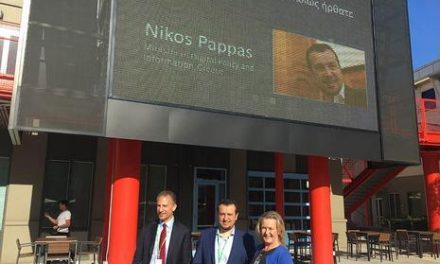By Nikos Pappas*
You don’t need to predict the future to say that 2018 will be a critical year for Europe. The divisions are transparent and manifest themselves at different levels. But already, the possibility of a composition towards a progressive direction is being highlighted. The voice of the peoples and European citizens are now open to governments and parties.
We – the left-wing Europeans – are characterized by our strong will. We must, therefore, we can build a sustainable, socially just and developmental prospect for the EU.
But there are examples of setbacks in Central Europe, with the most recent being the inclusion of a far-right party in the Austrian government.
Another big issue is Brexit. A few years ago, no one would have believed that we would be in front of such a ‘departure’. The message for the rest of the world is not positive. This in itself strengthens the tendencies of economic protectionism and the fortification at state borders.
Our plan for Europe is for it to be a political union of democracy, social justice and equality, within a framework of security and stability, with development, on the one hand, and personal prosperity and caring for the planet on the other.
This all becomes even more important in a world that is ever more precarious. There are new outbreaks of poverty, war and humanitarian crises every day. Brexit offers the opportunity for the fans of isolationism to push for a different narrative: a narrative of discord, of the need for national governments to return to power, of the bad Europe that allows immigrants to flood it. A narrative that conceals, for example, that xenophobia in Britain is mainly targeted at immigrants from former Eastern Europe, who are in the process of obtaining specialized jobs. This project of isolationism is what we must avoid at all costs and leave the EU door open to our British partners for the future.
The same xenophobic voices attempt to create new problems with migration, as manifested in the last session with the unacceptable proposal to abolish quotas, i.e. the abolition of European solidarity. However, they have been averted, and this shows that there are strong forces that defend the Union’s humanitarian founding values. With the Greek government at the front line.
In addition to solving the problems at this juncture, we as Europeans have to simultaneously look to the future. The future that we equate to a deeper democracy and social pillars of the EU. Fortunately, we are not the only ones who believe this. Emmanuel Macron believes in Europe, he stressed that at Pnyx Hill, reiterated it at the Sorbonne and has the power to influence others. Angela Merkel does not seem to share the reactions of her party’s super-conservative wing, but on the contrary she agreed with France to bring to the March Summit a joint proposal for a new chapter: the banking union. The core of progressive logic for the EU lies in this debate, the necessary link between political union, the deepening of democracy and the upgrading of social cohesion. A series of changes and substantive reforms are at the core of well-timed federalism, which can be the serious and effective counterweight to the extreme right and isolationism.
The introduction of ministerial positions in the economy and social cohesion, the convergence of economies through new common institutions, the increase in the budget, the banking union, the European unemployment allowance are just a few of the changes that make up such a plan.
In Gothenburg, at the Social Summit for Fair Jobs and Growth, Europe reunited with its social roots by adopting the Pillar of Social Rights. These are 20 principles relating to fair working conditions, equal access to the labor market and social protection. Today they are not yet binding and some of our partners are still hesitant. But it is a confirmation of the support of the substantial powers for a perspective Europe with a human face. And this battle will be difficult but we will have the chance to fight it.
Let us not be complacent, our opponents will be right-wing populism that is rooted in fear: fear of immigration, fear of terrorism, fear of the future, fear of our neighbor. The only counterweight to fear is hope and we must return it to European citizens.
Europe, in order to move forward, needs European solutions. We can not just live in Europe. We have to say in which Europe we want to live. Otherwise, Europe will remain as it is and not for long. Now is the time. The old governance model has shown its limits. We need action and coordination of a wide range of forces to block isolationism.
As it steadily steps out of the crisis, our country has an important role to play in European orientation. No more Summits on Greece but Summits with Greece. Greece has ideas, vision, allies, and even has experiences that other partners do not have. 2018 can bring Europe a step closer to what we are dreaming of. A step closer to what its peoples need.
* Nikos Pappas is Minister of Digital Policy, Telecommunications and Information. His article “Το 2018 να φράξουμε το δρόμο στον απομονωτισμό με μεγάλες συμμαχίες” (In 2018, we will block the road to isolationism with great alliances) has been published in Nea Selida weekly newspaper (Translation: Magda Hatzopoulos)
